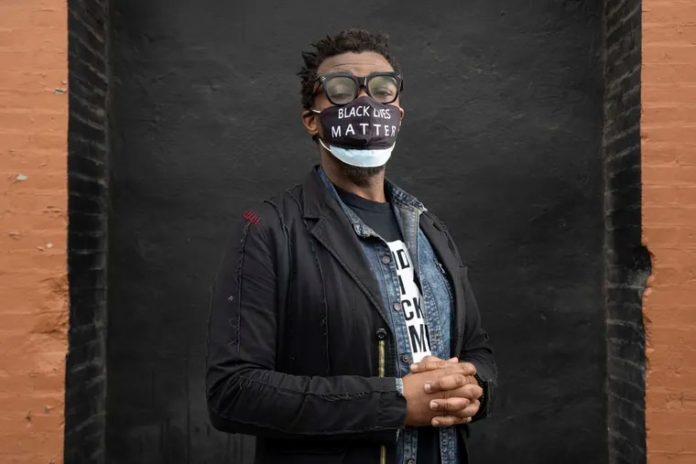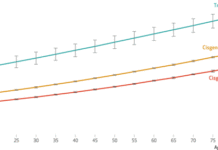/cloudfront-us-east-1.images.arcpublishing.com/pmn/SLXM56JHUVFG5IOE3U3V6U3JOQ.jpg)
Michael Hinson Jr. did not believe in celebrating resiliency.
“Resiliency is a burden that is often placed on Black and brown communities,” the longtime Philadelphia activist told The Inquirer last year. Rather than putting people of color in a position where they must be resilient in order to succeed, he said, “we should be thinking about how do we prevent the need for resiliency.”
Hinson, a longtime AIDS and housing activist, and leader in Philadelphia’s Black LGBTQ community, died Saturday of an undisclosed cause, according to longtime friends and statements by various organizations in which he was involved. An obituary in the Philadelphia Gay News stated he died at Penn Hospice at Rittenhouse. He was 55 years old.
Those who worked with him describe Hinson as a force for good, an educator, and a friend whose unwavering belief that things could change for the better was matched by his ability to care for the people around him.
“He was love — and he was loved,” said Quibila A. Divine, the chief program officer at SELF Inc., the emergency housing provider that Hinson ledco-w
Hinson grew up in Hemingway, S.C., where he dreamed of becoming a lawyer, like his favorite courtroom drama television characters, he told Philadelphia Gay News. He ultimately chose a different path to helping those in need, as an activist for people in his community who were dying of a new virus and neglected because of their race.
When Hinson moved to Philadelphia after high school in the mid ‘80s, AIDS was rapidly spreading, and there was no treatment.
“It was a very, very, very scary time and there weren’t many resources for us,” he told PGN.
David Fair, a longtime LGBTQ and HIV activist in Philadelphia, recalled a 19-year-old Hinson confidently walking in to the Philadelphia offices of Bebashi Transition to Hope, a health-care organization that supports people of color living with HIV/AIDS, to advocate for more resources and volunteer his time. Not enough was being done to prevent AIDS in the Black gay community, Hinson told the nonprofit’s leaders.
“He was right, of course,” Fair said.
What made Hinson’s work in the early ‘90s so special was his ability to reach Black youth and win their trust, Fair said.
One way he did that was by founding Colours Magazine. The publication included news and information about AIDS but also much more, said activist Abdul-Aliy Muhammad. The magazine was stylish, had features on entertainment, profiles of community members, poetry, and details about upcoming social gatherings.
Hinson expanded the magazine’s success into Colours Organization, which put the magazine’s medical advice and lessons into action in the community. The organization created social spaces for members of a community who often felt stigmatized and discriminated against in some bars and clubs.
“It became a cultural hub,” Muhammad said.
In 2000, Mayor John Street appointed Hinson the inaugural liaison to the LGBTQ community of the city, where he was a trailblazer in public policy surrounding LGBTQ issues in Philadelphia. He was instrumental in the addition of gender identity in the city’s Fair Practices Ordinance that prohibits discrimination in 2002.
Also among his accomplishments: Co-founding Philadelphia Black Gay Pride, now a popular annual celebration; securing funding to expand health services at the Mazzoni Center, a leading medical center for LGBTQ individuals; and teaching at Cheyney University of Pennsylvania, a historically Black university from which he earned a master’s in public administration.
Earlier this summer, Hinson was named CEO of SELF Inc., Philadelphia’s largest provider of emergency and transitional housing, where he’d worked as president and chief operating officer since 2017.
“He was like Philadelphia’s superhero,” said Michael Melvin, assistant supervisor of prevention education at Bebashi and a former Colours Organization employee. “The Philadelphia LGBT community would not be what it is if there wasn’t a Michael Hinson.”
Hinson’s legacy lives on.
Colours Magazine ceased publishing years ago but Colours Organization has returned to “the essence of what the magazine was originally made for,” said Andre Ford, Colours executive administrator. Instead of a print magazine, the organization shares information on issues relevant to communities of color through social media and the internet. He says the organization “always had the legacy of Michael Hinson.”
Kia J. Miller started working as the chief human resources officer at SELF Inc. just two weeks ago. Ahead of her virtual job interview with Hinson, she prepared by studying up the organization and his work. She learned that he founded the Colours Organization, where she attended events as a teen.
“A lot of the things that he accomplished, that he did for the city of Philadelphia, positively impacted my life,” Miller said.
She never got to meet Hinson in person, but she cherishes the opportunity she had to interview with him before starting her job at his organization.
“I felt great during that interview, being able to say thank you,” Miller said.








